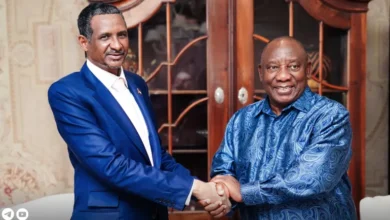Israel and the ICC: A legal scholar’s response to The Washington Post
Abdelghany Sayed

On November 24, The Washington Post’s editorial board published a piece in which it laid out its views on the arrest warrants for Israeli officials recently issued by the Pre-Trial Chamber of the International Criminal Court (ICC).
Reading it as a legal scholar, I found it full of misinformation and misrepresentation of facts. It is unclear whether the editorial was an attempt to mislead the readers or reflected the board’s significant lack of knowledge and research abilities on ICC-related matters – or both.
In any case, the article merits a response that lays out the facts and points out the misrepresentation.
Did the ICC ignore other grave situations?
At the outset, the article suggests that the ICC has failed to address international crimes in Syria, Myanmar and Sudan. This is manifestly nonfactual.
The default grounds for the ICC to exercise jurisdiction is the commission of international crimes on the territory or by the nationals of either a state party to the ICC or a non-state party that has accepted the jurisdiction of the court. The three states referred to neither joined the ICC nor accepted its jurisdiction.The court exercises jurisdiction in Sudan based on a United Nations Security Council resolution that referred the case to the court in 2005 – as is its right under the Rome Statute, the treaty that established the ICC. Since then, the ICC has actively engaged with the situation in Sudan, issuing seven arrest warrants and pursuing six cases.
Despite the lack of grounds to exercise jurisdiction in Syria, former Prosecutor Fatou Bensouda indeed strived to address these crimes. Her office came up with a creative approach to examine acts committed by nationals of states parties but ended up with a very narrow scope of perpetrators and crimes.
There is no ICC “failure” to address crimes committed in Syria; rather, there is a Security Council failure to refer the Syria case to the ICC, as it did with Libya and Sudan. It is appropriate then to criticise the Security Council system, including the United States’s decades-long abuse of its veto powers, for instance, to shield Israel.
Should the Israeli system be entrusted with
prosecution?
The Post uncritically reproduces a regular Israeli and US talking point: that Israel as “a democratic country that is committed to human rights” is capable of investigating its own security forces. The ICC should not put “elected leaders of a democratic country with its own independent judiciary in the same category as dictators and authoritarians who kill with impunity”, it argues.
This argument misrepresents the law of the ICC and conceals substantive facts.
Even if Israel and its institutions could be deemed “democratic” and “independent”, international law requires a lot more than that. The principle of complementarity means that the ICC complements, rather than replaces, national jurisdictions. Thus, the ICC prosecutor may intervene only when the state that has jurisdiction is “inactive” in investigating the crimes.










